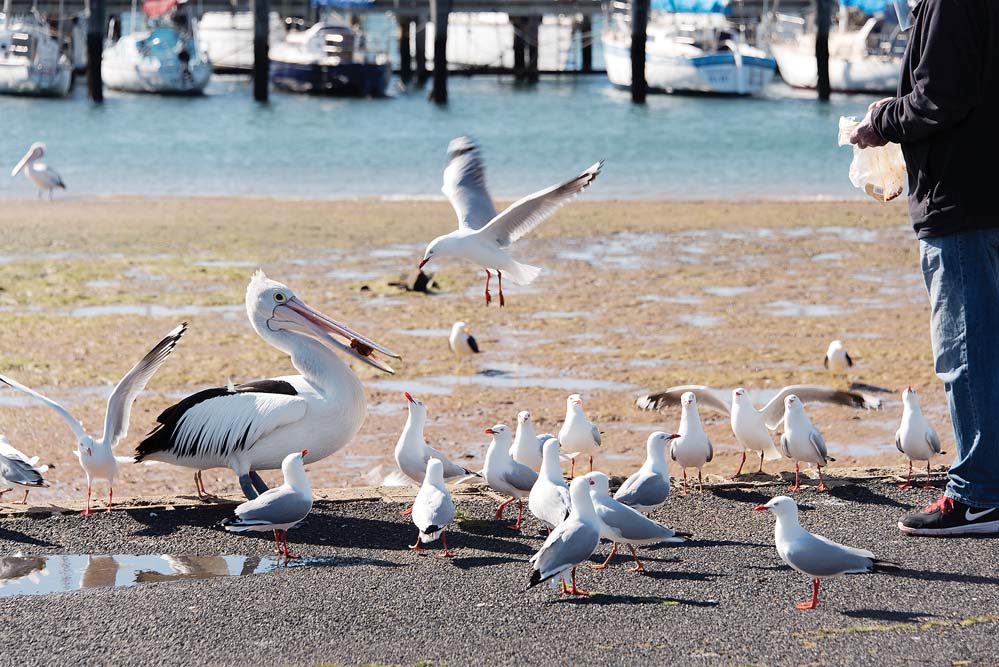IN what seems an unlikely scenario, birds, particularly seabirds, have become collateral victims to the coronavirus pandemic.
Untold numbers of disposable but not biodegradable face masks are entering the environment, adding to the already overwhelming pollution of beaches and waterways.
And people heading to the beach for exercise or just quiet contemplation, are offering birds tidbits and snacks that are not part of their normal diets. Processed foods, such as bread and mincemeat should not be on the menu. The birds may be killed out of kindness.
Disposing of the masks, which can take years to break down, has become a massive problem world wide.
Not only are discarded masks potential spreaders of the coronavirus (research shows that under certain conditions viruses can survive up to seven days on plastic masks), but they are also a danger to wildlife.
Masks can smother the environment and are ingested by animals which sometimes cannot distinguish between plastic and their prey.
If ingested, masks and other plastics swell and fill an animal’s stomach. Smaller animals can also become entangled in the masks.
Disposable masks should be placed in rubbish bins and not with recyclables.
Photographer Celia Furt worries that pelicans at Hastings are being fed “highly toxic food”.
The birds have long been a natural attraction at Hastings, readily taking cast-offs from fishers.
But with the loss of those readily available morsels the birds are quite happy to try whatever is on offer and Furt has photographed pelicans being fed “pizza, bread, anything but fish”.
“Since the lockdowns and the work that has been happening on the boat ramp, the fishermen can’t go fishing so the pelicans rely on humans to feed them. They hang out in the parking area with the seagulls,” she said.
“The big issue is that pelicans only eat fish and they are only built to eat fish. If they eat bread or pizza or fries, they can’t digest it and, at the end of the day, it will kill them.”


